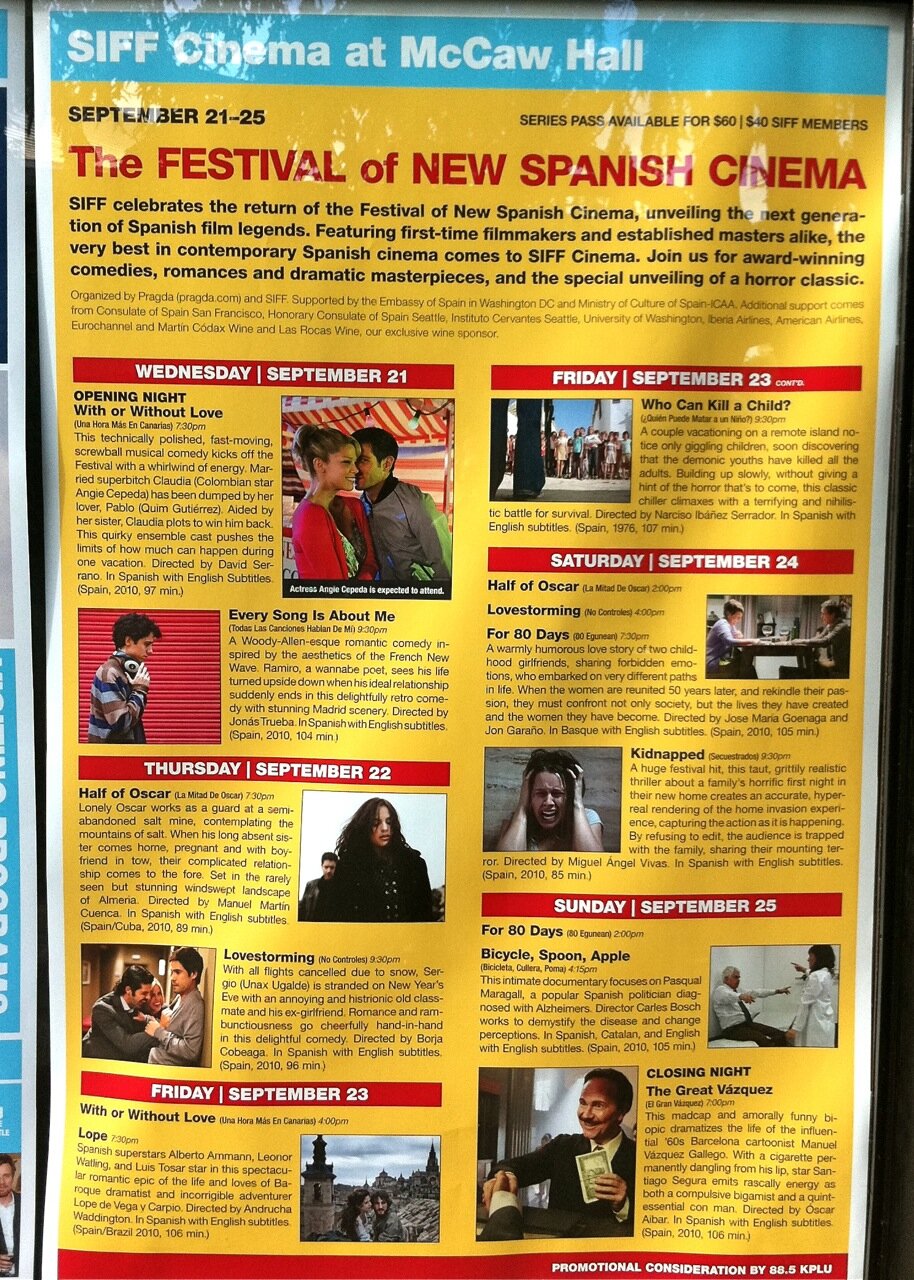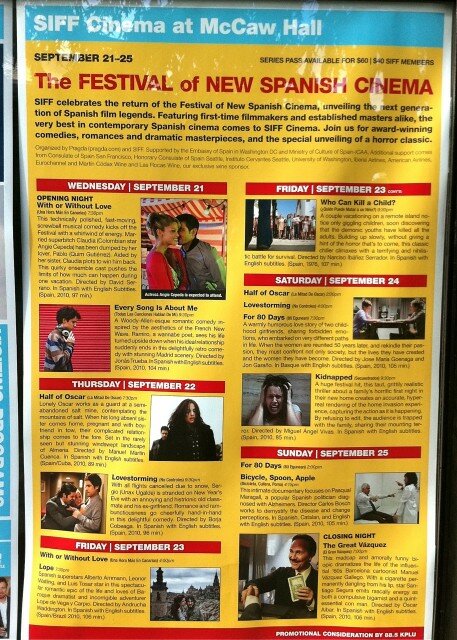Spain’s Cuarteto Casals is not a familiar name in Seattle but, after hearing the group’s performance at Meany Theater Tuesday night, as part of the UW World Series’ international chamber music series, let’s hope it will be brought back often. Their playing is extraordinary. I’ve rarely heard a group which can play as softly with at the same time such a clear and lovely tone. Like other top-flight groups, it plays as one person. Attacks, phrasing, the arc of each movement has all four musicians in complete synchrony.
For the Meany concert, the group chose music of two compatriots, Arriaga and Turina, following them with Schubert’s Rosamunde quartet, No. 13 in A Minor.
Arriaga’s short life (he died at 19 in 1826, a couple of years before Schubert) was largely spent in France and the first of his string quartets has only small intimations of the music of his home country. It’s an astonishing work for someone so young: sophisticated, well developed, elegant, and, unusual in places, with its quiet start and finish, though with plenty of verve in the center movements.
Arriaga was a violinist and his feeling for his instrument comes through in some particularly lovely melodic writing for the first violin, not that the other instruments are shortchanged; or perhaps it was that the quartet’s first violin, Vera Martinez-Mehner, is a remarkable performer. Not for nothing is Arriaga considered as a parallel to Mozart, had he lived longer.
La oración del torero (The Bullfighter’s Prayer) is another work which benefits from musicians able to play softly. Turina originally wrote it for four lutes which explains the volume level, then arranged it for string quartet. It uses declamatory phrases over tremolos from the other instruments, some of it very Spanish in flavor, but this short work also ends quietly, in this case with the sound almost dying away.
The musicians gave an interpretation full of insight and empathy to the program’s big work, the Rosamunde quartet, composed not long after Schubert had been seriously ill, not yet strong again, and recognizing he probably never would be. There is sadness here, music rich with emotion and deeply expressive, with a brighter view breaking through from time to time.
The Casals quartet brought all this out, but never to excess. This group could teach all those performers who feel that to get a point of intensity across they must hack at their instruments. Not once did the Casals play a harsh, hacked note, yet they could achieve a fine energetic forte expressing the mood of the music with no trouble and in keeping with classical style. Often their tone floated out, delicately gorgeous, never overdone. No wonder this young group, formed in 1997, all four still in their 30s, has won all sorts of prizes and been praised wherever they go.
Out of curiosity, did you know about the concert? It was a shame–and surprising–that Meany Theater was only half full for this fine concert, despite free tickets for two students under 17 with a paid ticketholder. This offer is being repeated for the concert by Russian pianist Nikolai Lugansky playing Chopin and Liszt November 15, another not to be missed performance. I worry that if we don’t attend the superb World Series concerts at UW, it will go away, and we won’t have anything like the international choices we do now.

